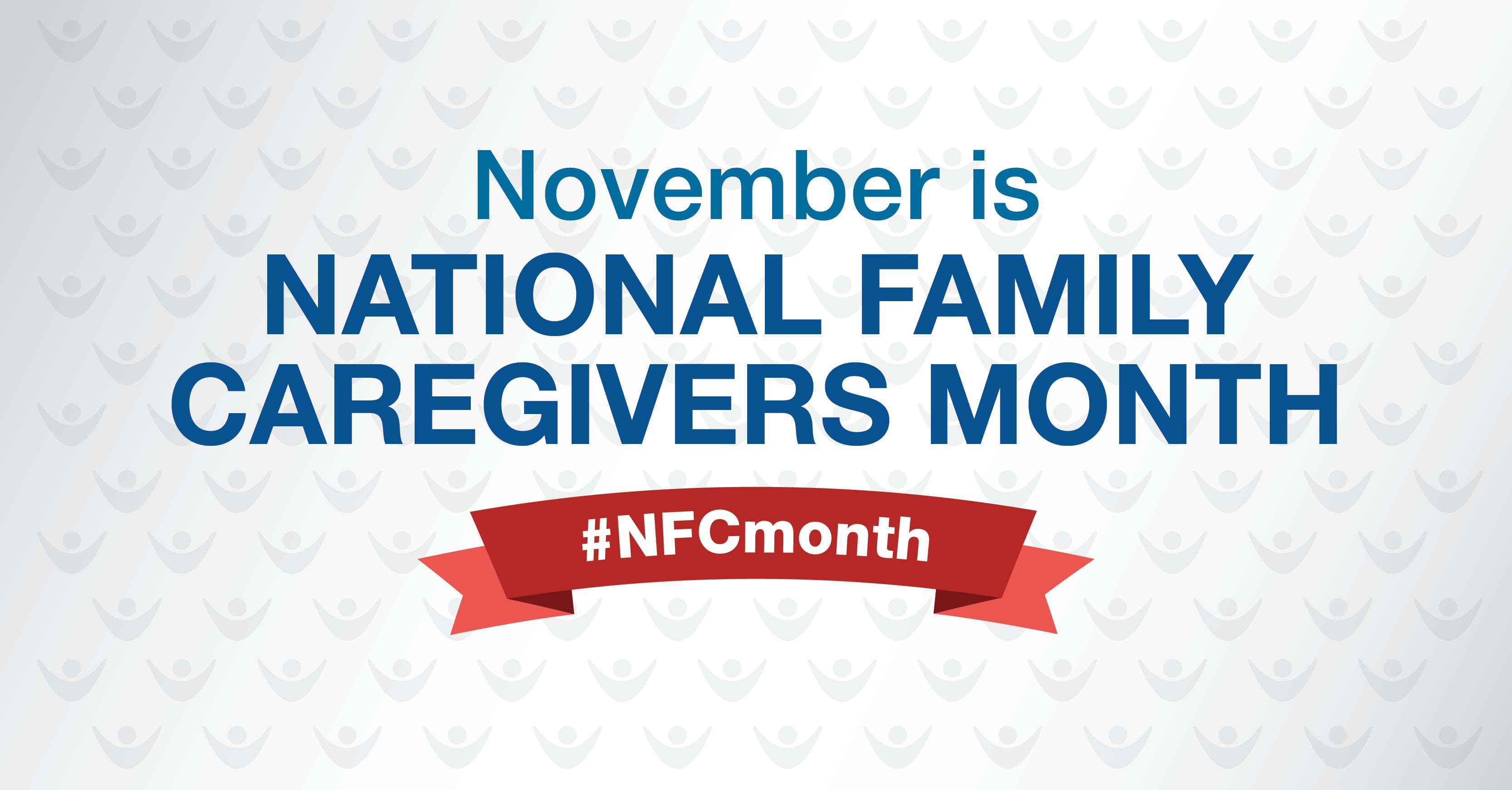Celebrated every November, National Family Caregivers Month (NFCM) is a time to recognize and honor family caregivers across the country. It offers an opportunity to raise awareness of caregiving issues, educate communities, and increase support for caregivers.
The national observance is led by Caregiver Action Network (CAN), a nonprofit that provides free education, peer support, and resources to family caregivers. CAN selected the 2024 theme, I Care..., to highlight the importance of self-recognition and self-identity — key factors in caregivers’ access to essential support. According to CAN, more than half of those providing care in the U.S. don’t recognize themselves as caregivers. As a result, many do not connect with supports that can make a difference throughout their caregiving journeys.
- More from CAN: Why Self-Identification Matters
- A Proclamation on National Family Caregivers Month, 2024 | The White House
- NFCM: Celebrating our Successes, Continuing and Expanding Supports for Caregivers and Families (ACL blog)
- HHS Secretary Becerra's personal story about being a caregiver
ACL Efforts to Support Family Caregivers
Families are the primary source of support for older adults and people with disabilities in the U.S. Many family caregivers work and provide care, experiencing conflicts between competing responsibilities. Research indicates caregiving takes a significant emotional, physical, and financial toll. ACL is a proud observer of NFCM, but we work year-round through programs and councils to support and empower family caregivers.
The 2022 National Strategy to Support Family Caregivers was created to support family caregivers of all ages, from youth to grandparents, and regardless of where they live or what caregiving looks like for them and their loved ones. The strategy was developed jointly by the advisory councils created by the RAISE Family Caregiving Act and the Supporting Grandparents Raising Grandchildren Act, with extensive input from the public, including family caregivers and the people they support. It will continue to evolve with the caregiving landscape.
View the strategy and the 2024 progress report to Congress
ACL's National Caregiver Support Collaborative works to advance the 2022 National Strategy to Support Family Caregivers, increasing the recognition, support, and inclusion of family, kinship, and tribal caregivers — ultimately resulting in measurable improvements in the capacity of the aging and disability networks to assess caregiver needs, provide supportive services, collect data, and support the well-being of caregivers and the people receiving care.
Visit the National Caregiver Support Collaborative website
Hashtags
- #NFCmonth (Annual observance hashtag, short version)
- #NationalFamilyCaregiversMonth (Annual observance hashtag, long form)
- #NationalCaregivingStrategy (Tag for ACL's National Strategy to Support Family Caregivers)
- #FamilyCaregiver (A larger conversation on family caregiving)
Need a quick social graphic to promote #NFCmonth? Feel free to use ours!
Family Caregiving in the News
The content below discusses our work to advance supports for family caregivers or provides insights into challenges faced by the caregiving infrastructure.
- Supporting America's Family Caregivers,watch ACL Principal Deputy Administrator Maura Calsyn's interview on family caregiving with Axios
- Caregiving Can Be a Tough, Lonely Mission. One Daughter Found Ways To Reconnect,an article from NPR
- Caregiver Nation: A Pivotal Moment for Family Caregiving in the U.S.,a blog by president and CEO of the National Alliance for Caregiving
- Family Caregivers: The Invisible Army is Gaining Notice,an article by AARP’s Nancy A. LeaMond
- Dying Broke,a new jointly reported series on America’s long-term care crisis from KFF Health News and the New York Times
- ‘Hidden Population’: Aging Canada Needs Caregivers Who Need Supportfrom Canadian Affairs mentions the 2022 National Strategy
- November is National Family Caregivers Month: Who is caring for the caregivers?features ACL grantees discussing caregiver support
- Online interview with Frontlines TV,Alison Barkoff describes ACL's work to ensure the needs of disabled people, older adults, and family caregivers are reflected in federal policies


